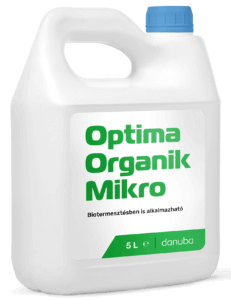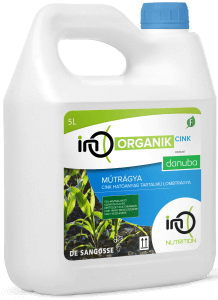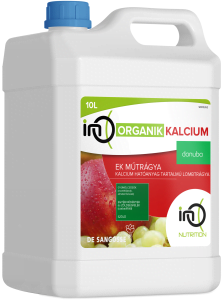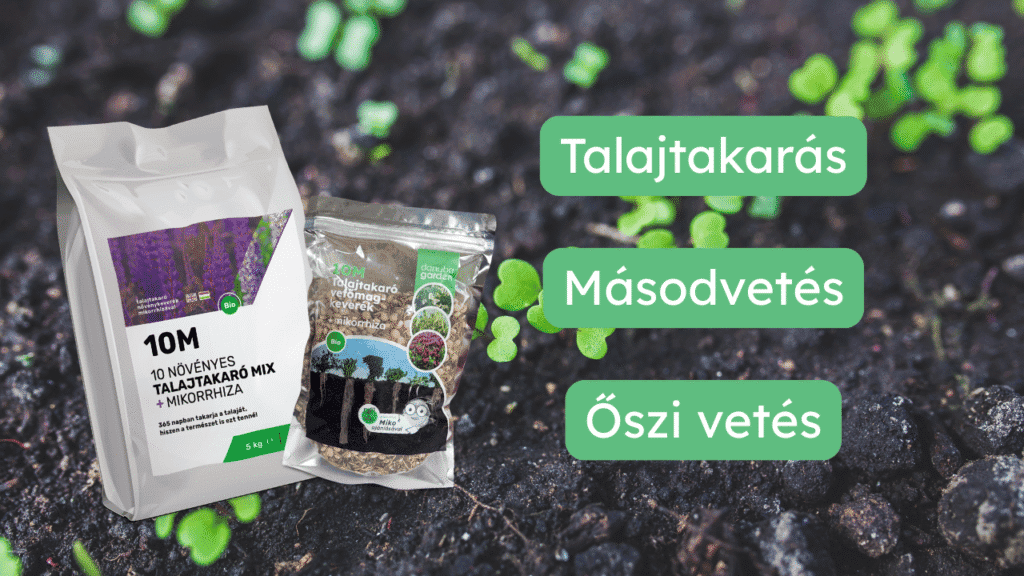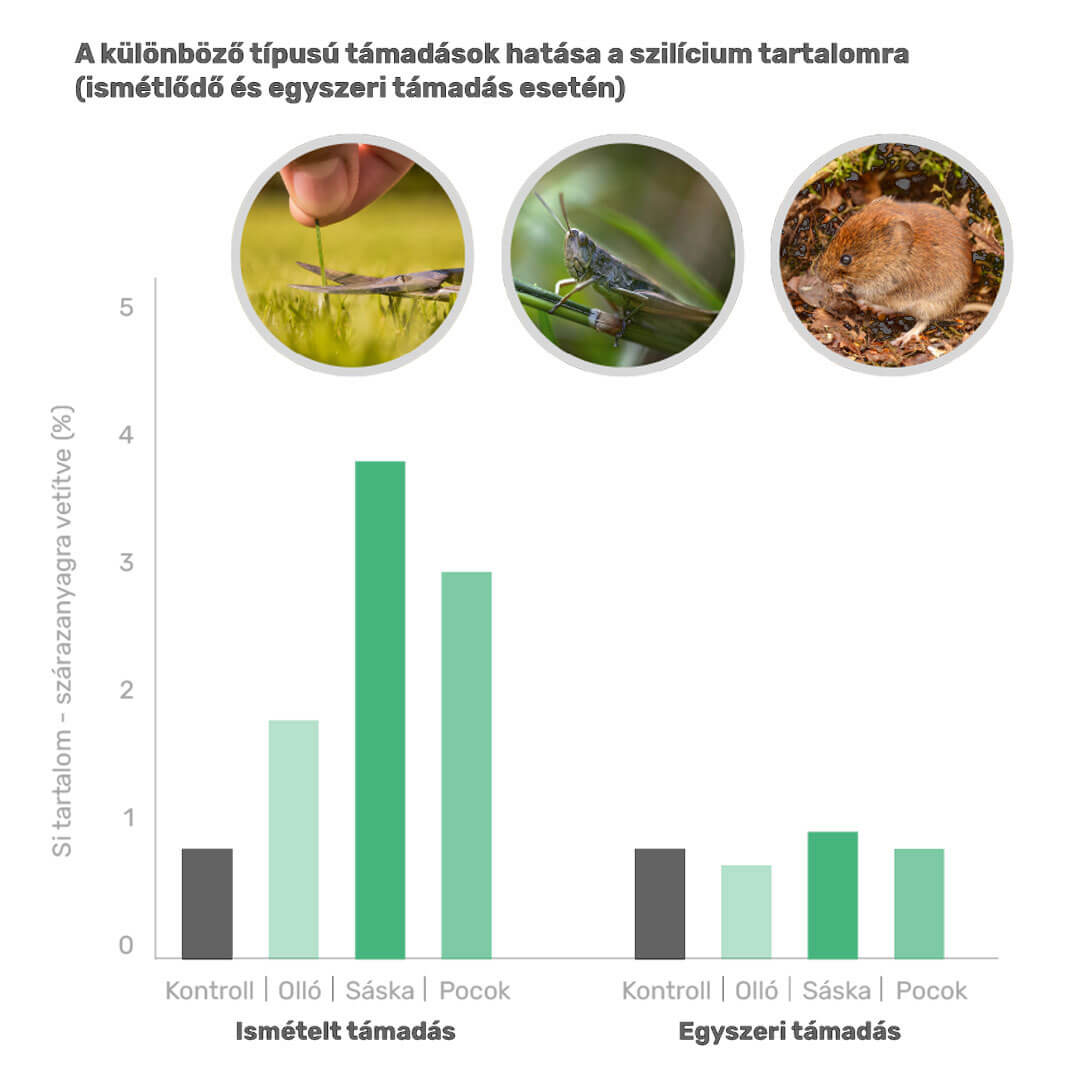Foliar fertiliser
Special foliar fertilisers for special needs
Danuba Garden offers a range of foliar fertilisers that are recommended for some specific issues. Thanks to special raw materials and production technology, they can also be used in organic farming.
University of York 2016 experiment in 5 different grasses: How does silicon supplementation control chewing insect damage? Increasing the Si content increased the resistance of the plants to chewing insects. The graph shows that plants treated with silicon were less likely to be chewed by insects.
Related product: Ino Si
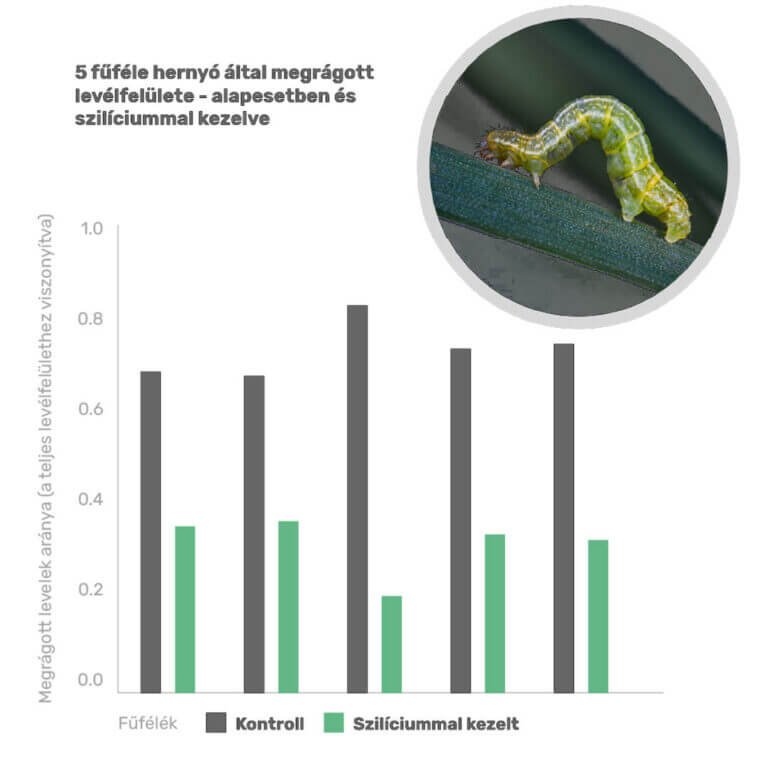
Our foliar fertilizer products:
Related posts:
How do I use it?
Tips:
From Ino Organik Zinc mainly helps prevent or cure zinc deficiency. Since zinc is very important for chlorophyll production, yellowing of the leaves between the veins may indicate a zinc deficiency, especially near the stem. Crops susceptible to zinc deficiency: maize, baby, grapes, citrus, potatoes, apples and pears
From Ino Organik Copper mainly helps prevent or cure copper deficiency. As copper is a constituent of many proteins, vitamins and enzymes, and strengthens the cell wall, it is an important micronutrient for plants. Its deficiency can be seen in the yellowing and twisting of the tips of young leaves. Fruit trees are sensitive to zinc deficiency.
From Ino Organik Calcium mainly helps prevent or cure calcium deficiency. In many vegetables, calcium deficiency manifests itself as tip rot of the fruit, where black spots may appear. Vegetable crops that are sensitive to calcium deficiency include tomatoes, peppers, courgettes, aubergines and pumpkins.
💚 DanuBor Bio+ mainly helps prevent or cure boron deficiency. As boron is very important for perfect flowering, it should be applied before flowering. Plants sensitive to boron deficiency are vines, fruit trees and vegetables.
The most accurate way to detect zinc, copper, calcium or boron deficiencies in soil and results of the leaf analyses - we are big fans of this procedure at Danuba Garden - thus, we encourage everyone to find out more about their soil and plants!
If you do not know what nutrient deficiency your plant is suffering from, use DanuVital Bio+ a product that contains all the essential nutrients!
Danuba foliar fertilisers are characterised by:
💚More about our two most popular foliar fertilisers💚
DanuVital Bio+ - a foliar fertiliser created according to the plant's needs!
- The French manufacturer has based the composition of the product on the nutrient ratios of the sap of a healthy plant. They have added several times this amount, but in the right proportions for our plants. The multiple nutrient concentrations trigger water uptake from the roots to compensate for the high nutrient concentrations in the plant. However, the suction effect from the root not only takes up water but also additional nutrients from the soil.
- The uniqueness of DanuVital Bio lies in its dual application in organic farming and its high nitrogen content. It is very challenging to create an organic foliar fertiliser with sufficient nitrogen.
- Use is recommended monthly during the growing season. If possible, it should be applied to the leaf surface together with organic matter, as it will penetrate more quickly and be better utilised. Asco Alga, Kelpak and Blackjak are excellent combination partners for this.
Ino Si - foliar fertiliser, which increases the plant's defensive capacity!
- The extra high silicon content in Ino Si is partly incorporated into the leaf surface and partly absorbed by the plant. Wherever it goes, it strengthens the cell wall, making the plant more resistant. The silicon that remains on the leaf surface enlarges the leaf hairs and develops sharp silicon crystals on its surface. In this way, insects, caterpillars and fungi that "travel" on the leaf face a significant physical barrier. This hinders their movement and penetration into the plant.
- Silicon crystals, like tiny glass shards, can reflect some of the sun's rays, reducing the effects of the scorching summer sun and harmful UV rays.
- You can see that you can use a product with a complex effect to benefit your plants.
- It is recommended to use them from May to August, even several times.
The University of York in 2016 with a experiment to test whether the effect on plants when their leaves are damaged. In addition to the control, the leaves were first cut with scissors, then chewed with a chewing mouth-breathing insect (locust), and then with a herbivorous rodent (sowbug).
It was found that a single leaf damage did not induce any change in the silicon content of the plant. However, when damage was regular, the plant started to take up more and more silicon to strengthen its leaves! What's special is that the plant sensed when it was cut with scissors, i.e. it was not attacked by an animal, because it didn't react as much.
It has also been observed that the plant not only increases the silicon content of its leaves when attacked from the outside, but also uses them to develop small spines. This is another physical barrier for insects and fungi.


